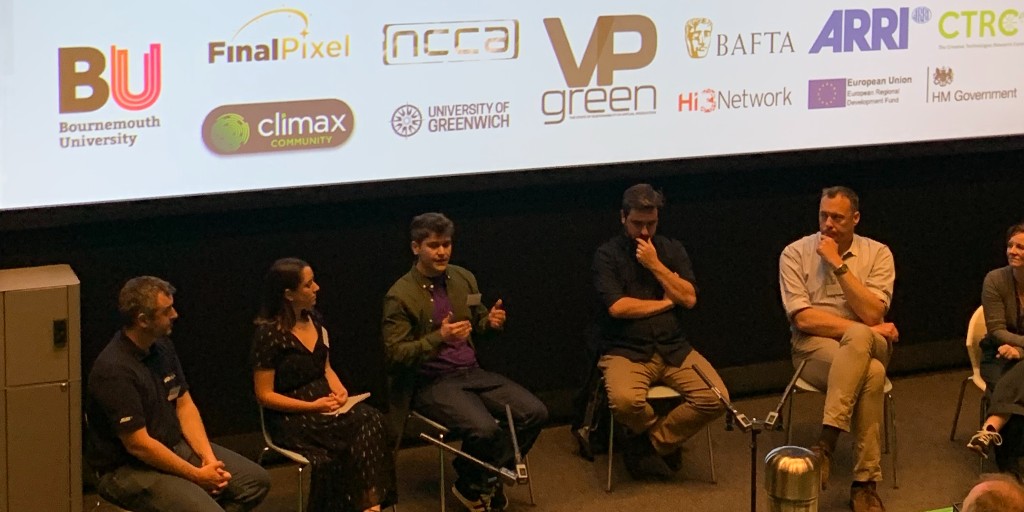The one-day symposium’s aim was to create a roadmap for novel research into sustainable VP filmmaking. Experts discussed ways of helping filmmakers, producers, broadcasters, studios and ad-agencies make the best ecological decisions for their productions and clients.
The event – titled Emission Impossible: Why our Own House is Still on Fire – saw panel discussions and debates exploring the state of sustainability in VP practices within the creative industries. London-produced films alone add about 125,000 tonnes of carbon emissions each year - the same as 24,000 homes.
The university’s Stockwell Street building houses the kind of cutting-edge virtual production (VP) techniques discussed during the event.
Co-organiser Dr Jodi Nelson-Tabor, from the university’s School of Design, said: “VP Green is our inaugural symposia which gives us the opportunity to bring together various sectors within the creative industries. It focuses on the new opportunities and challenges VP brings, in terms of tackling climate change and our carbon footprints within the realm of film and television production.
“With thought leadership ranging across academia, manufacturers, production, data scientists and creative tech, our aim is to create a framework where robust discussions can be explored and potential pathways for solutions envisioned. Virtual production, as an emerging methodology still in the early adoption phase, could lead the charge with sustainability practices embedded from the start.”
Dr Lindsay Keith co-organised the event and chaired the opening discussion on a panel with Michal McKenna from Final Pixel, Richard Southern from Bournemouth University, Martina Coleman from Climax, Martin Manov from LSBU/Hi3 Network and David Levy from Arri Studios.
She added: “Striving for sustainability is an ongoing and uphill walk for film, TV and advertising. Location shoots are a vital part of making incredible cinema but it doesn't just cost the budget.
“Virtual production thrived under lockdown as filmmakers realised that LED screens and videogame software was a potent combination that enabled lifelike location shoots to be carried out in the studio.
“We assume that reducing the travel and energy requirements of location shooting means that it’s better for the environment - but is it?
“The real meat of the discussion is how we can walk the line between providing the highest quality film output at the lowest cost the planet.”
Actor, presenter and activist Cel Spellman gave the keynote speech to open the event. He said: “With virtual production, it’s a very exciting time to be in the industry. We’re still learning. We get to know how much impact - positive and negative - this way of working has.
“But if we, as storytellers, can put solutions in practice which can become the norm then every production will have to go this way. This can pioneer a new way of working.”
For further inquiry please contact Dr Jodi Nelson-Tabor j.d.nelsontabor@greenwich.ac.uk or via Twitter@SusFilmProd

